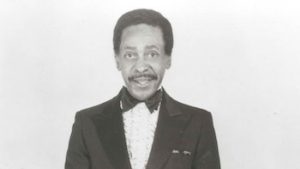
"Buster" Brown
'Buster' Brown's birth in 1913 is marked on this date. He was a Black Tap dancer and entertainer.
James "Buster" Brown's career started in high school in Baltimore, MD, when tap, vaudeville, and dances like the Charleston were popular. There were no teachers then; learning to dance was a matter of teaching yourself. Brown and friends would attend shows in local theaters and try to work out the steps later. He formed the troupe Three Aces, later named Three Speed Kings, which performed in variety shows at nightclubs and was known for fast tapping or "flash dancing."
Around World War II, swing was king, and Brown toured with Big Band legends Duke Ellington and Cab Calloway. The rise of rock' n' roll put a damper on jazz, and tap had to survive underground. Prompting tap's return to the Broadway stage, Brown was also a member of the Copasetics (credited with what is known as the Tap Renaissance) in the '70s. Brown enjoyed a career that spanned seven decades, from touring the vaudeville circuits to guest appearances in the Broadway hit revue "Black and Blue."
Other career highlights include the Apollo Theater, being a soloist with the Cab Calloway Orchestra, the United States Information Agency tours, appearing in the film The Cotton Club (dance sequence with Gregory Hines), and TV spots on many shows, including the PBS unique The Gershwin Gala. Brown was also a featured artist in several tap dance documentaries, including Fancy Feet and Great Feats of Feet. He was an active teacher, choreographer, and a recipient of fellowships from the New York Foundation for the Arts and the National Endowment for the Arts.
In 1990, he was a resident artist at the Colorado Dance Festival and Boston Great Tap Reunion. One of America's true national treasures, he was selected by his peers as the sole recipient of the 1998 American Tap Dance Legend Award. Buster Brown died on May 7, 2002.